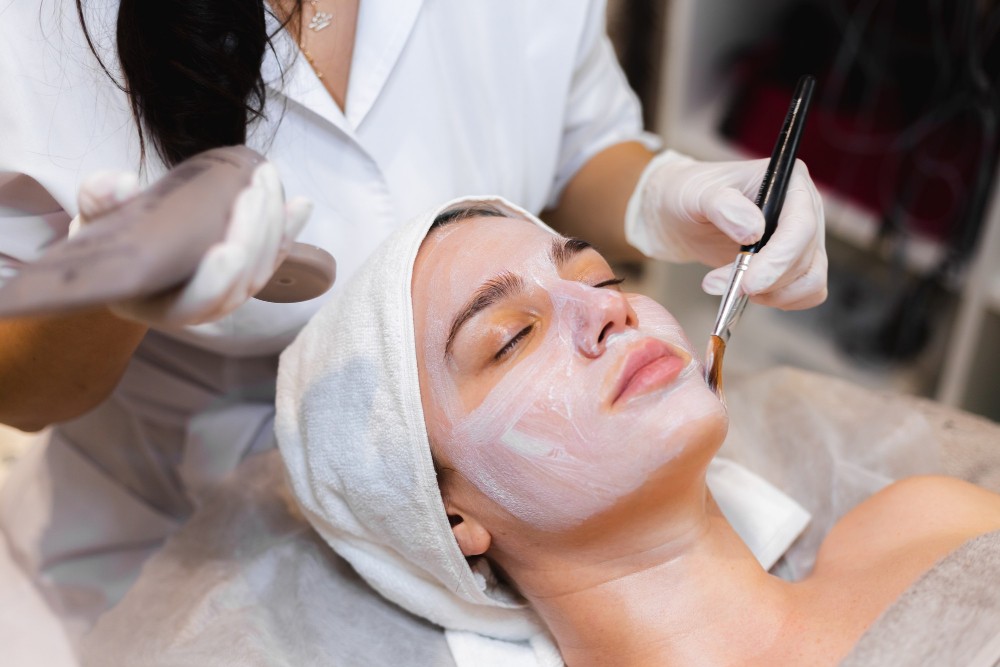Makeup has been part of human culture for millennia, evolving from ancient rituals and symbolic practices to today’s everyday beauty routines. While some see it as simply a tool to enhance physical appearance, psychology reveals that the reasons we wear makeup go far deeper. Makeup can influence how we perceive ourselves, how others perceive us, and even how we feel in daily life.
1. The Self-Expression Factor
One of the most powerful psychological drivers behind makeup is self-expression. Just like clothing or hairstyles, makeup allows individuals to communicate personality, creativity, and mood. A bold lip color can signify confidence, while soft, neutral tones may convey elegance or subtlety. Through makeup, people have the freedom to shape and reshape their image according to how they want to feel or be seen. This flexibility can provide a significant emotional boost, helping individuals project their inner selves outwardly.
2. Boosting Confidence and Self-Esteem
Psychologically, makeup can serve as a confidence enhancer. Studies have shown that many people experience a “lipstick effect,” where wearing makeup makes them feel more competent, attractive, and socially prepared. In professional or social settings, makeup can act as a subtle tool to boost self-esteem. It’s not about masking flaws; rather, it’s about highlighting strengths and feeling empowered in one’s skin. By presenting oneself in a way that aligns with personal standards of beauty, makeup can reduce self-consciousness and increase overall confidence.
3. Social Perception and Influence
Makeup also plays a role in social perception. Research suggests that individuals who wear makeup are often perceived as more approachable, trustworthy, and professional. This is particularly evident in industries where appearance can influence first impressions and interactions. While societal standards of beauty can sometimes create pressure, the psychological impact of makeup on social perception remains undeniable. It can act as a form of nonverbal communication, subtly shaping how others respond to us.
4. Mood Regulation and Emotional Well-Being
Interestingly, makeup can affect mood and emotional well-being. Applying makeup can be a soothing ritual, offering a mindful pause for self-care and personal reflection. The tactile experience of blending foundation, applying mascara, or experimenting with color can be a form of stress relief. Additionally, seeing oneself in the mirror after a completed makeup routine can trigger feelings of satisfaction and positivity, reinforcing a sense of control and personal agency.
5. Cultural and Historical Context
Cultural and historical influences shape the psychology of makeup as well. In different eras and societies, makeup has carried symbolic meanings – from status and wealth to religious or ritualistic purposes. Cultural norms and media portrayals continue to shape how we choose and perceive makeup today. Awareness of these factors helps us understand that makeup is more than vanity; it is a complex interplay of identity, expression, and societal influence.
6. The Psychology of Experimentation
Another psychological aspect of makeup is experimentation. Trying new looks, colors, or techniques can foster creativity and self-discovery. It provides a safe space to explore identity and challenge comfort zones. Makeup allows individuals to test different facets of their personality, embrace change, and build resilience through self-expression.
Aditi Dubey
Aditi Dubey is a distinguished makeup artist, recognized for her calm, meticulous, and inventive approach to bridal and event makeup. Her philosophy goes beyond aesthetics; she emphasizes the emotional impact of makeup on her clients, helping them feel confident, radiant, and authentic. By combining technical skill with a deep understanding of individual psychology, Aditi transforms makeup into a form of personal empowerment, proving that beauty routines can nurture both appearance and inner well-being.
Don’t Miss: How to Handle Last-Minute Makeup Emergencies
Conclusion
Makeup is far more than a superficial accessory – it’s a psychological tool that shapes self-perception, influences social interactions, and enhances emotional well-being. From boosting confidence to providing a creative outlet, makeup impacts both mind and body, proving its significance in human behavior and identity. Understanding the psychology of makeup allows us to appreciate it as a powerful form of self-expression and personal empowerment.

